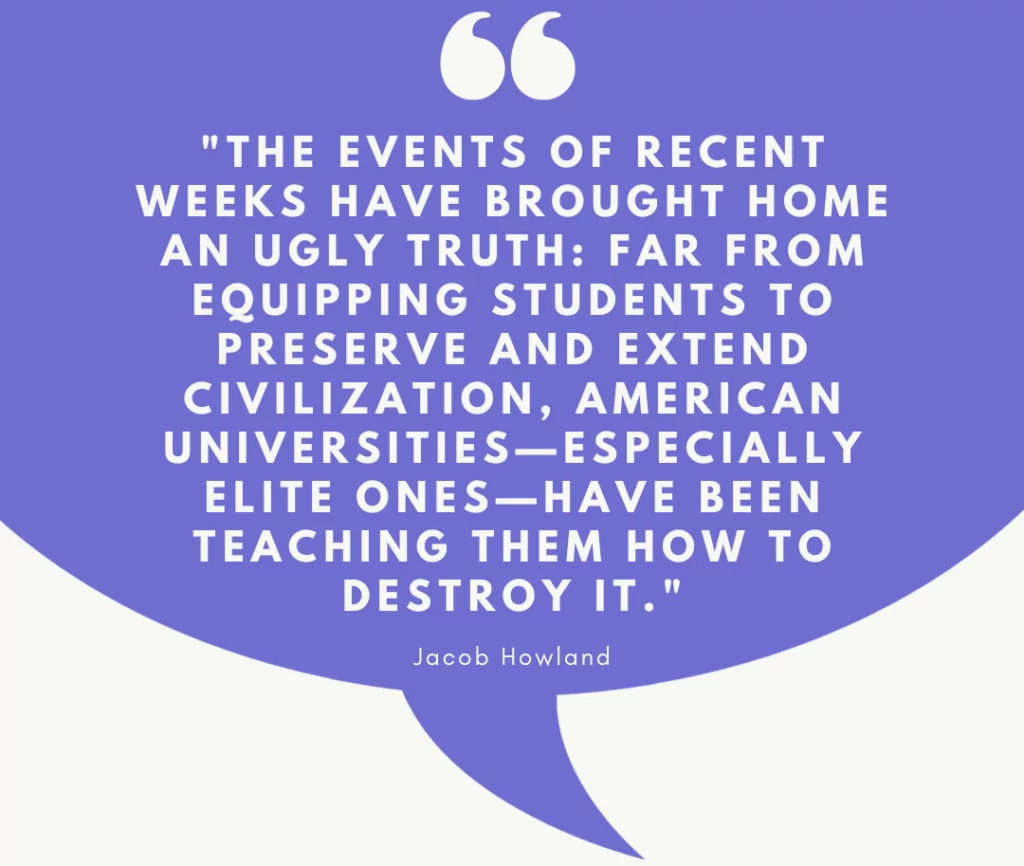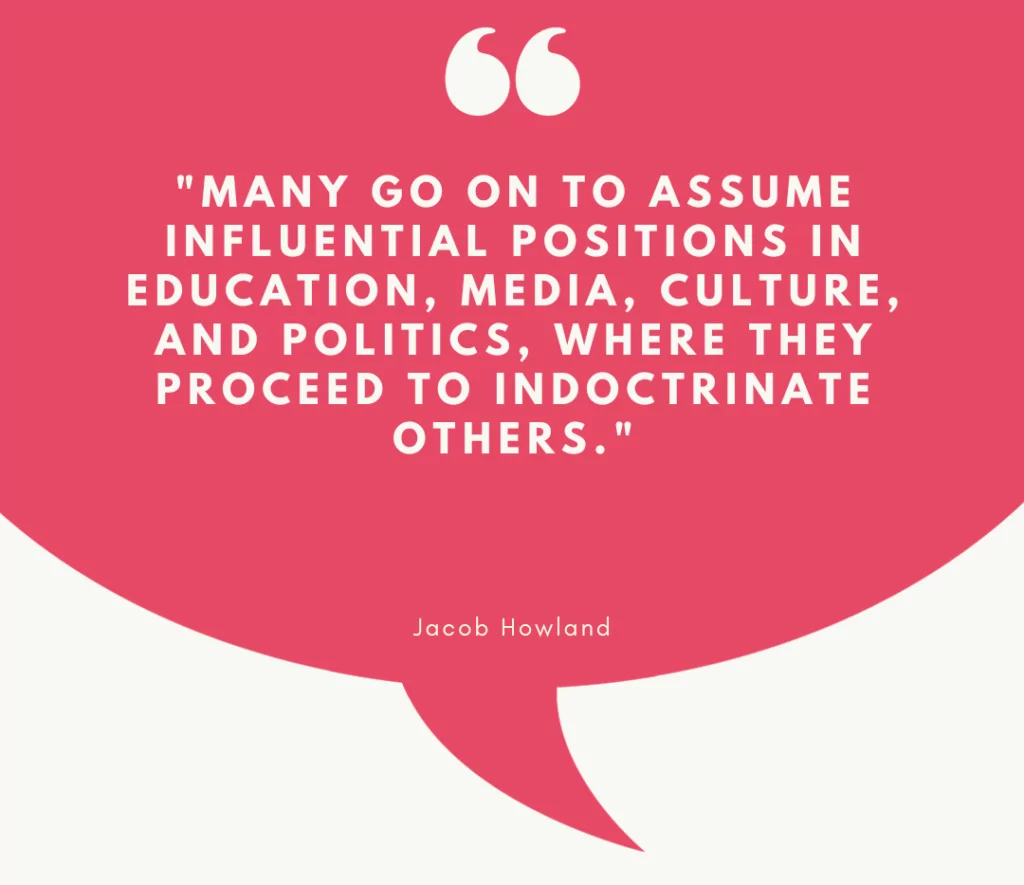The state of elite higher education has come under scrutiny following student and faculty responses to Hamas’s activities, City Journal reports. The repercussions of the intellectual trajectory on campuses are now being keenly felt, raising fundamental questions about the role of universities in shaping the future of Western civilization.

✅ AI Essay Writer ✅ AI Detector ✅ Plagchecker ✅ Paraphraser
✅ Summarizer ✅ Citation Generator
Key Takeaways
- Concerns rise over student and faculty reactions to Hamas’s actions, questioning the direction of elite higher education
- .Universities, historically centers of knowledge and wisdom, are viewed by some as becoming breeding grounds for divisive ideologies
- Calls to reform current educational institutions and found new ones intensify, as traditional higher education seems to drift from its foundational values.
“Higher education exists to preserve, transmit, and extend knowledge… Universities stand at the threshold between past and future, self and society.”
These institutions have traditionally acted as the guardians of wisdom, bridging the gap between past achievements and future aspirations. Their primary role is to keep alive the essence of civilization.
However, a belief is growing that U.S. universities are departing from this mission. Critics argue that students are increasingly exposed to postmodern intellectual cultures, promoting views that could harm the foundations of Western society. These educational directions are concerning for some, who believe that students are being led away from understanding the essence of social relationships and into a mindset of “zero-sum games of domination and servitude.”
Repercussions on Society

The theoretical foundations taught in universities don’t remain confined within campus boundaries. The influence of these teachings becomes evident when students apply these doctrines in real-world scenarios. As the Penn alumnus Marc Rowan pointed out, “words and ideas matter.”
Recent events showcase how academic doctrines can manifest in the real world. At Georgetown, Students for Justice in Palestine highlighted the tangible application of “decolonization,” a term previously considered more abstract.
The Ripple Effect: From Campus to the World
The views propagated in universities inevitably influence various spheres of society. Graduates of these institutions often assume influential roles in education, media, politics, and culture. The perspectives they carry with them shape narratives and drive societal norms.
Incidents such as the reporting on the missile attack in Gaza by major newspapers like the New York Times and the Washington Post, as well as comments from professors at elite universities, underline the significant influence of these educational backgrounds.

The Way Forward: Reform or Build Anew
Given the perceived crisis, there’s a clarion call to address the issue head-on. Some suggest reforming existing institutions, advocating for alumni to voice their concerns and reconsider their financial support. Critics argue that universities must reevaluate their current trajectories and return to their foundational values.
However, others believe the situation may be beyond repair and advocate for the creation of new educational institutions. The University of Austin (UATX) is highlighted as an example, emphasizing both personal and public blessings of a liberal education. UATX’s curriculum is built on foundations that many believe are crucial for a balanced educational experience, including studies on diverse global cultures and ideologies.
The Main Point
The state of elite higher education in America is at a crossroads. The direction taken now may define the nation’s intellectual trajectory and, by extension, its influence on Western civilization for generations to come.
Follow us on Reddit for more insights and updates.





Comments (0)
Welcome to A*Help comments!
We’re all about debate and discussion at A*Help.
We value the diverse opinions of users, so you may find points of view that you don’t agree with. And that’s cool. However, there are certain things we’re not OK with: attempts to manipulate our data in any way, for example, or the posting of discriminative, offensive, hateful, or disparaging material.